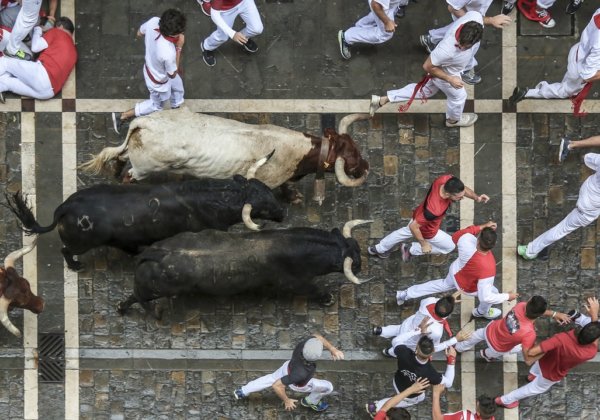5 Reasons Why Polar Bears Do Not Belong in Australia

It’s not hard to see why humans are fascinated by polar bears. These large, charismatic mammals are a symbol of the Arctic, one of Earth’s most untouched environments.
Because people are so interested in polar bears, the Gold Coast amusement park Sea World keeps a number of them on display to entertain paying customers. But these animals will never be happy in Australia. Here’s why:
1. They need space to roam.
In the wild, polar bears spend most of their day travelling. They routinely climb over snow banks and steep ridges and can even leap over cracks in the ice that are more than 6 metres wide! With a home territory of up to 300,000 square kilometres and a travel range of 3,000 kilometres a year, they’re among the widest-ranging terrestrial mammals.
In captivity, a typical polar bear enclosure is estimated to be just one-millionth the size of the species’ natural home range. In fact, the “Polar Bear Shores” exhibit is much smaller than the facility’s car park. But even if Sea World were to dedicate its entire grounds to housing the four polar bears who live there, this still wouldn’t come close to being enough.

2. They’re adapted to a cold climate.
Polar bears are naturally suited to the cold, as their thick fur prevents almost all heat loss. Sea World’s polar bear enclosure supposedly replicates an “Arctic summer”, but the subtropical Queensland climate is entirely inappropriate for them.

3. They’re predators.
Polar bears’ highly evolved sense of smell means they can sniff out prey more than 1 kilometre away and through 1 metre of snow. They stalk their targets (usually seals) patiently, lying low at breathing holes until they get a chance to club them with their enormous paws. In captivity, they’re denied the opportunity to engage in this instinctual behaviour or do anything else that’s natural and important to them.

4. They become frustrated and stressed.
A University of Oxford study based on four decades of observing animals in captivity and in their natural habitat found that species such as polar bears, lions, tigers, and cheetahs “show the most evidence of stress and/or psychological dysfunction in captivity”and concluded that “the keeping of naturally wide-ranging carnivores should be either fundamentally improved or phased out”.
Captive polar bears commonly pace, walk in tight circles, sway, roll their heads, and swim in repetitive patterns. This behaviour is symptomatic of not just frustration but also profound despondency.
In her book Animal Madness, Laurel Braitman writes that the practice of putting captive animals on antidepressants is surprisingly common. She says, “At every zoo where I spoke to someone, a psychopharmaceutical had been tried.”At New York’s Central Park Zoo, a polar bear named Gus was seen compulsively swimming figure of eights in his pool and was prescribed Prozac.
https://www.facebook.com/JusticeForCaptives/videos/286693148649772
5. Their cubs are more likely to survive in the wild.
Attempting to breed polar bears in captivity ends in failure more often than not – indeed, the infant-mortality rate in captive breeding programmes is almost double that found in the wild. Polar bear cubs died at Sea World in 2013 and 2017.
Studies show that when captive bearsmate,this results in the birth of cubs only 5 per cent of the time. Furthermore, more than half of captive-born cubs die within the first month, whereas in the wild, around one-third die within the first year. A natural habitat is clearly essential for successful breeding.
Captive polar bear breeding programmes have very little to do with species conservation. Rather, they’re designed to increase profits, enticing the public with the promise of seeing cute baby animals.
What You Can Do
- Spread the word that Sea World holds polar bears captive, and ask your friends and family not to visit establishments that imprison them – or any other animals – for human entertainment.
- It’s estimated that two-thirds of polar bears could disappear by 2050 because of climate change. Animal agriculture is one of the biggest sources of the greenhouse-gas emissions that cause climate change, so eating vegan is the best way you can help these animals survive in their natural habitat.







